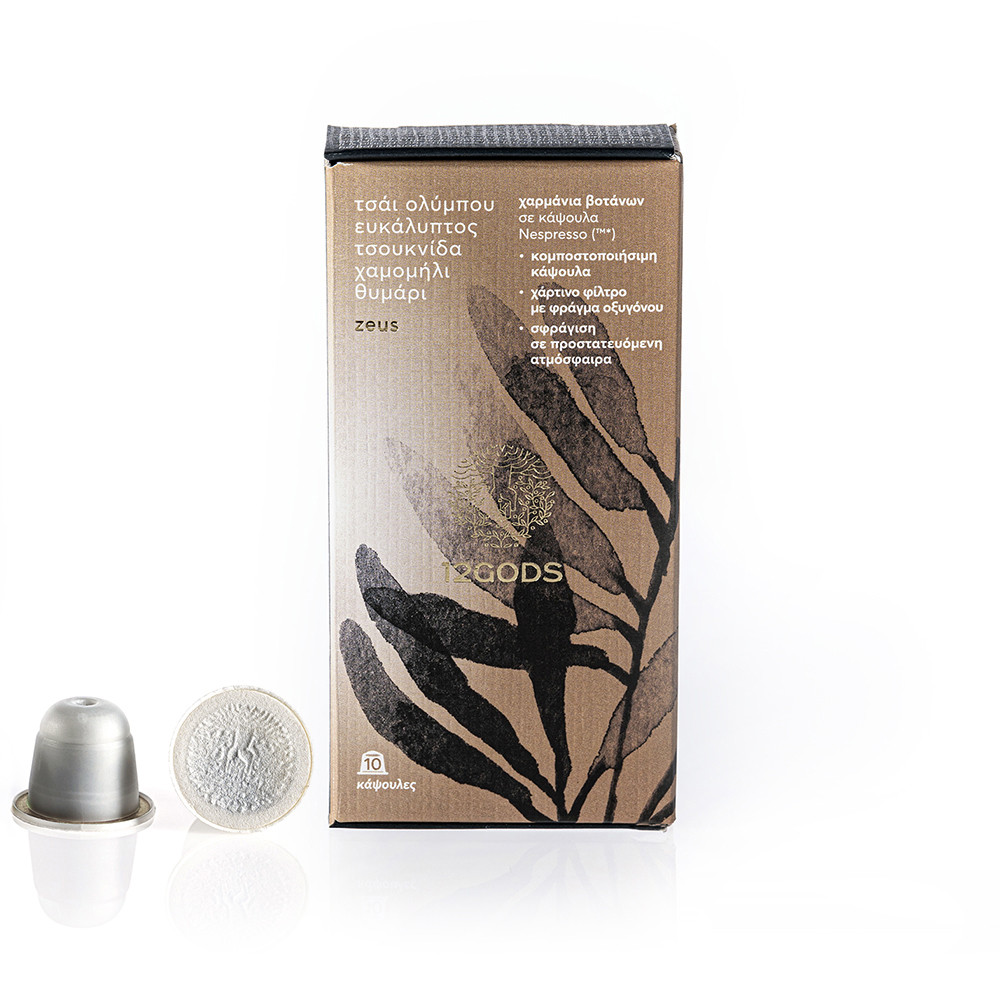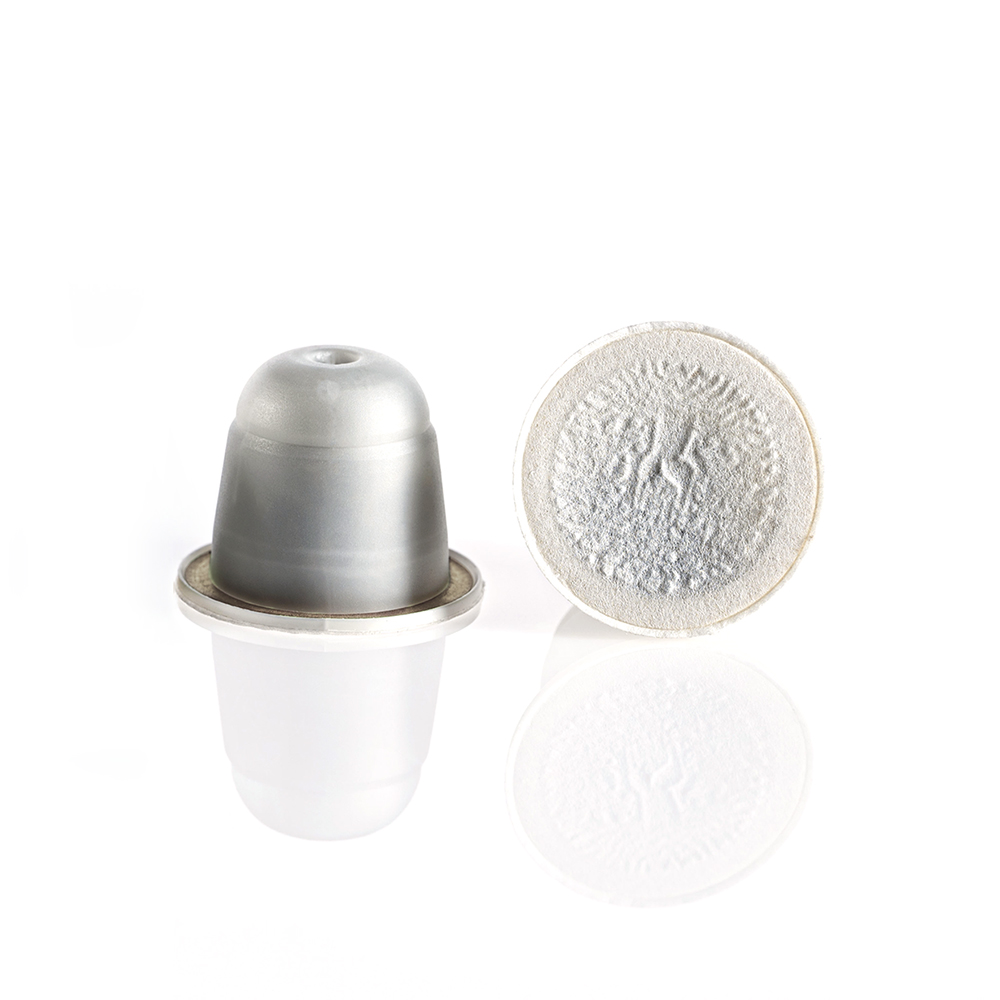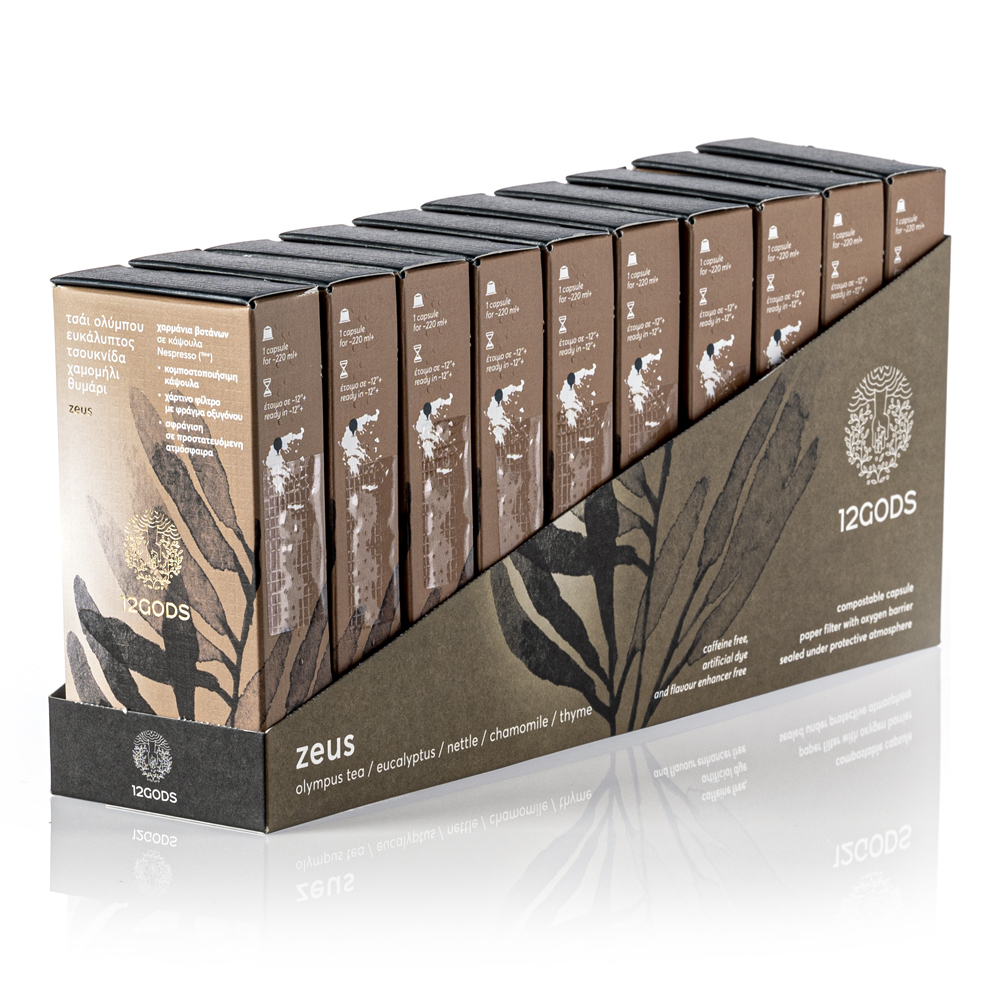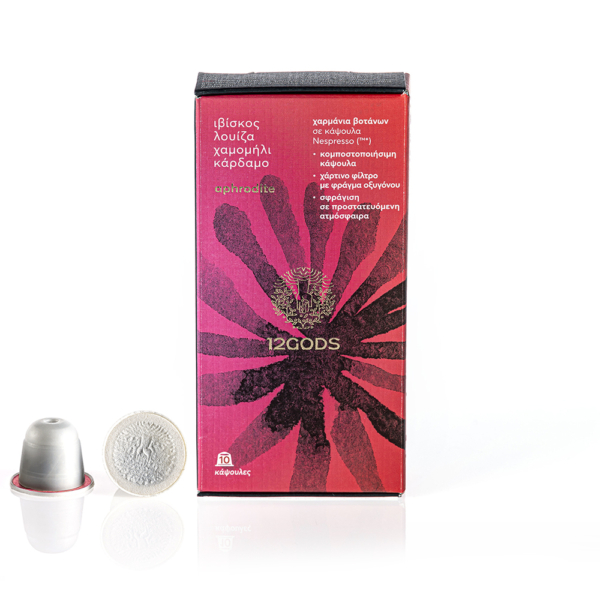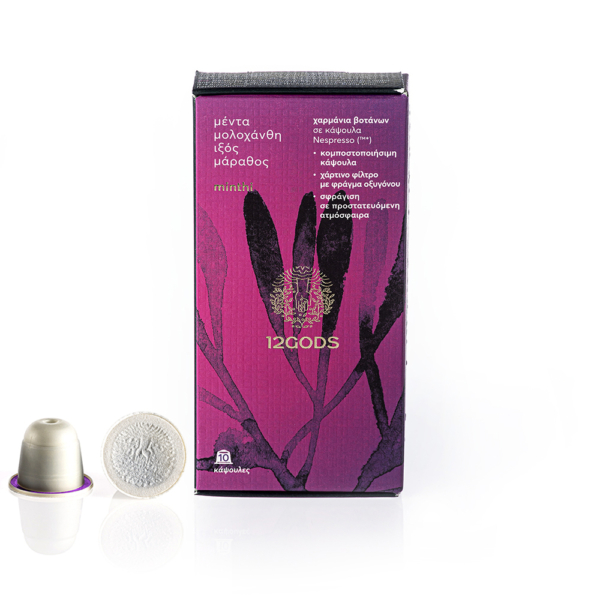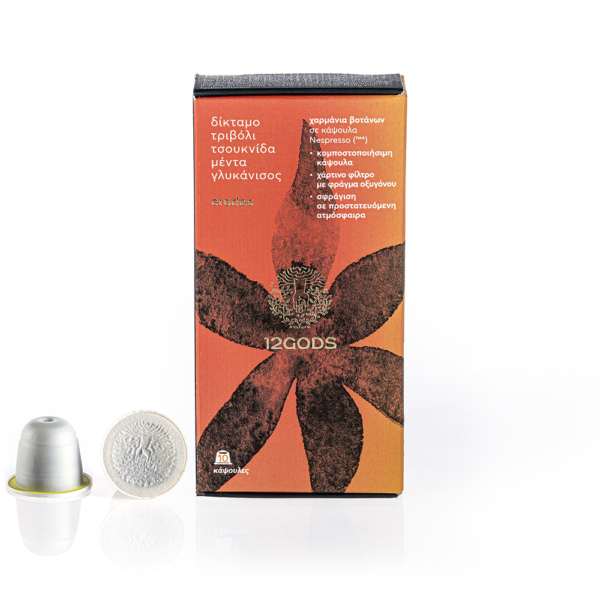
Zeus
Olympus mountain tea
Eucalyptus
Chamomile
Nettle
Thyme
package
for ~220 ml+
€9,00
For thousands of years, mountain tea has been the mainstay of any ailment. Its antioxidant, anti-inflammatory, disinfectant, stimulant and diuretic properties have made it one of the most popular medicinal drinks. First of all, the father of modern medicine, Hippocrates, recognised the valuable benefits that this natural decoction can offer, both to the human immune and respiratory system. The Greeks from antiquity referred to mountain tea as the "tea of the gods" or the "tea of the Titans". The Titans were powerful deities who lived on Mount Othris, where mountain tea grows naturally. From there it is said that they fought Zeus and the other gods, throwing huge stones at Olympus. Thus, they had managed to rule the world for a while, before the Olympian gods. It is also mentioned by Theophrastus (372-287 BC) and Dioscorides (10th century AD). The scientific name Sideritis comes from the Greek word "iron", due to its ability to heal wounds caused by iron weapons of the time. A second version attributes its name to the high iron content of the plant, while a third view argues that the name Sideritis is due to the flowers of the tea, whose shape resembles the teeth of the calyx at the tip of the spear. In Crete it is also known as "malotira", a name that derives from the prevailing version, from the Italian words "male" (disease) and "tirare" (draw), because in Venetian Crete it was considered a panacea for colds and diseases of the respiratory tract. In the mountains of Greece there are about seventeen species, the most famous of which are: Sideritis athoa (tea of Mount Athos), Sideritis clandestine (Taygetus tea), Sideritis scardica (Olympus tea), Sideritis raeseri (Parnassus tea), Sideritis syriaca (Malotira tea of Crete), Sideritis Euboea (Evia tea).
The Aboriginal people of Australia knew and took advantage of the medicinal properties of eucalyptus leaf oils and used them in traditional medicine to treat body aches, nasal congestion, fever and colds. In Greece we find the species Eucalyptus globulus which reaches a height of 80 meters. It was introduced to Greece by the botanist and scholar Theodoros Orfanidis in 1862. It is the most widely planted hardwood tree in the world. The first seed import was recorded in Spain in 1863 by Rosendo Salvado, a missionary monk who sent seeds to his family from Australia. The cultivation of eucalyptus in Spain began almost a century after Banks and Solander collected the first specimen of the genus Eucalyptus during their first voyage with Captain Cook across the Pacific (1768-1771). Eucalyptus essential oils have been known in Western culture since 1788. The beginning of the evolution of the species was observed in 1865 in the La Granja area of Barcelona and its knowledge, in the Royal Botanic Garden of Madrid, at the same time. This species of eucalyptus was discovered on the island of Tasmania by French explorers in 1792 and was one of the first species of the genus to be officially described. The use of eucalyptus extends beyond wood to the production of essential oils.
The word chamomile comes from the ancient "chamaimilon" (hamai + apple). According to Galen, the ancient Egyptians used it as an antipyretic and, above all, against intermittent fevers. Ariston, a physician before Hippocrates, as reported by Galen, prepared a medicine with chamomile that he called "colic" and recommended it for "all pains". Hippocrates used it as an emmenagogue, against hysteria and leukorrhea. Dioskourides and, later, Pavlos Aiginitis recommended it as an antipyretic, diluent, painkiller and emmenagogue. Aspasia (it is not clear whether she was the wife of Pericles or not), as Aetios reports, used the infusion of chamomile in pregnant women because it reduced pain, during and after childbirth. The most famous variety of chamomile that grows and thrives in the Mediterranean and especially in the Peloponnese, Pylos, is Chamomilla recutita. Despite being widely used, researchers are constantly discovering new information about the active substances and properties it contains, to help make various preparations for pharmaceutical and cosmetic use.
The word "thymos", the scientific name of thyme, comes from the ancient Greek θύω = θυσιάζω (sacrifice), an etymology that justifies the presence of thyme, in the burning of incense on altars. The ancient Greeks used it to stimulate brain function, along with honey and vinegar. The Romans used it in their baths to gain vigour and energy. Pliny in 77 AD recommended thyme and vinegar compresses to treat headaches. He also used it against snake bites and insect bites. Alexander the Great used it in his campaigns against lice. In the 16th century, women offered their loved ones soup with grated thyme and beer as an aphrodisiac. At the same time, they used thyme against melancholy, filling the patient's pillows with crushed thyme.
Its Latin name is urtica and it got it from Pliny, because of the burning and itching it causes when it comes in contact with the human body. The Roman soldiers, to face the cold winters during their campaigns, were rubbed with nettles. The ancient Greeks ate it. Hippocrates himself, the father of medicine, had characterised it 2,500 years ago, a "panacea" that is, he had included it in the plants that make for all diseases and used it in more than sixty recipes. The Greek physician Galinos in his book "De Simplicibus Medicamentis ad Paternainum (espurio)" recommended it for many diseases. The benefits of the nettle was also recorded by Chrysippus, Aristophanes and Hesiod. An excerpt from Aristophanes, who advised the Athenians to plant wild nettles even in their gardens, has survived.
Apicius advised a few centuries ago: "When the sun is in Aries, cut female nettles to use them for medicine." Also, the same author has given us a recipe for an omelette with good quality olive oil and plenty of pepper. Petronius, a contemporary writer of Nero, wrote that in order for men to regain their lost sexuality, one would have to whip them with a bunch of nettles on the navel, kidneys and buttocks! The Indians used nettle to treat acne, diarrhea and urinary tract infections. In the world of medicine, nettle has been used to treat pneumonia, rheumatism, allergies and asthma.



